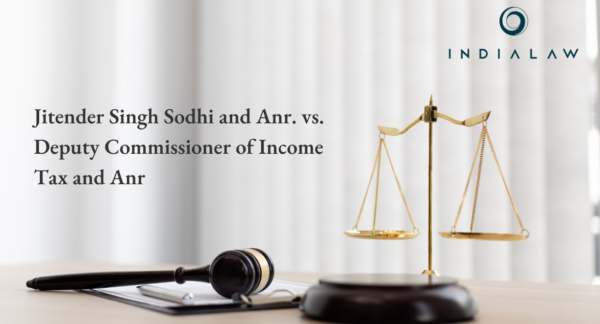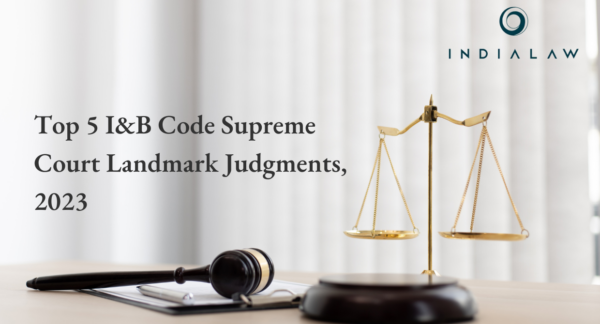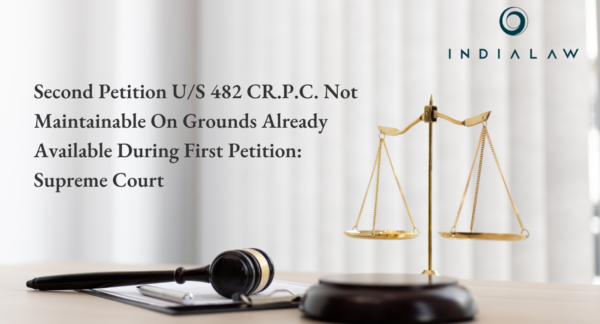Section 148 NI Act-Deposit of Minimum 20% Amount Is Not An Absolute Rule; Can Be Relaxed If Exceptional Case Is Made Out: Supreme Court

INTRODUCTION
The Division Bench of the Hon’ble Supreme Court Comprising of Justice Abhay S. Oka and Justice Pankaj Mithal in the matter of Jamboo Bhandari v. M.P State industrial Development Corporation Ltd, has held that in Section 148 NI Act – Deposit of Minimum 20% Amount is not an Absolute Rule; if the Appellate Court comes to the conclusion that it is an exceptional case, the reasons for coming to the said conclusion must be recorded.
FACTUAL SUMMARY
The appellants were accused before the Ld Judicial Magistrate who tried them on a complaint filed under section 138 of NI Act. In this case, the accused were convicted under Section 138 NI Act.
Further an appeal was preferred by the appellants before the Sessions Court.
The Appellants relied on Section 148 NI Act, the Sessions Court granted relief under Section 389 CrPC subject to condition of appellants depositing 20% of the amount of compensation.
The High Court upheld this decision of the sessions Court, citing a precedent, Surinder Singh Deswal Alias Colonel S.S. Deswal and Ors. Wherein the Apex Court has held use of word “may” in Section 148 of the NI Act which has to be read as “shall” and appellate Court must ordinarily order depositing of minimum 20% of compensation or fine amount imposed by the trial Court.
Thus, the appellant filed the present appeal by Special leave petition before the Hon’ble Supreme Court.
CONTENTIONS OF THE PARTIES
The learned Advocate appearing for the appellants submitted that an exception to pay compensation may be made by the appellant court.
However, the appellant court interpreted the language used in Section 148 of NI act as “shall” instead of “may” which is contrary to the provisions of section 148 of NI Act.
The submission of the learned counsel appearing for the original complainant is that neither before the Sessions Court nor before the High Court, there was a plea made by the appellants that an exception may be made in these cases and the requirement of deposit or minimum 20% of the amount be dispensed with.
The learned Counsel Appearing for the original Complainant submits that if such a prayer was not made by the appellants, there were no reasons for the Courts to consider the said plea.
FINDINGS OF THE SUPREME COURT
The bench Observed the following:
The paragraph 8 of the decision of this Court in the case of Surinder Singh Deswal Alias Colonel S.S. Deswal and Ors reads thus:
“The, amended Section 148 of the NI Act confers power upon the appellate court to pass an order pending appeal to direct the appellant-accused to deposit the sum which shall not be less than 20% of the fine or compensation either on an application filed by the original complainant or even on the application file by the appellant-accused under Section 389 CrPC to suspend the sentence.”
That a purposive interpretation should be made of section 148 of the NI Act. Normally the Appellate Court will be justified in imposing the condition of deposit as provided in section 148.
However in cases where the Appellate Court is satisfied that the condition of deposit of 20% will be unjust or imposing such a condition will amount to deprivation of the right of appeal of the appellant, exception can be made for reasons specifically recorded.
Further the bench observed that “When an accused applies under Section 389 of the Cr.P.C. for suspension of sentence, he normally applies for grant of relief of suspension of sentence without any condition. Therefore, when a blanket order is sought by the appellants, the Court has to consider whether the case falls in exception or not.”
“In these cases, both the Sessions Courts and the High Court have proceeded on the erroneous premise that deposit of minimum 20% amount is an absolute rule which does not accommodate any exception”.
In view of the same the bench set aside the impugned orders of the High Court and directed the High Court to reconsider the case afresh.
Further, the Supreme court has directed the parties to appear before the High Court to re-examine the cases, considering the principles outlined in the judgment.
The interim order for the suspension of the sentence would continue until the High Court’s decision.




